 Every time a truck driver gets into his vehicle, he’s facing the possibility of an accident, and accidents that involve big rigs have a higher probability of causing severe injury, which of course impacts the cost of trucking insurance.
Every time a truck driver gets into his vehicle, he’s facing the possibility of an accident, and accidents that involve big rigs have a higher probability of causing severe injury, which of course impacts the cost of trucking insurance.
It’s no surprise that the transportation industry has the highest incidence of fatal work injuries. According to the U.S. Department of Labor (DOL), there were 1,388 transportation and material moving workers fatally injured at work in 2016. That number accounted for 40% of all reported on-the-job fatalities.
Increasing safety and minimizing accidents is one of your best defenses against rising commercial vehicle insurance costs and the ever-increasing shortage of truck drivers.
Accidents and Driver Error
Most accidents that involve big rigs are due to driver error including lack of poor judgment, speeding, using a mobile device, not being aware of blind spots, driving under the influence, and driving while fatigued. The Federal Motor Carrier Safety Administration (FMCSA) states, “Even the most well-trained, safety-conscious commercial motor vehicle (CMV) driver is at risk of engaging in driving behaviors that could lead to a crash on today’s crowded highways.”
Understanding what causes truck accidents and how to avoid them is the first step. Providing ongoing safety training for drivers and enforcing a culture of safety is the next step. It may seem like a lot of effort up-front, but the payoff will be far-reaching and long-term.
Here are 3 tips for safe driving leading to lower truck insurance costs:
1 - Stay Sharp/Pay Attention
Truck drivers need to pay attention to their surroundings: unexpected road conditions, distracted drivers, and drivers who don’t understand how commercial vehicles operate. FMCSA suggests scanning ahead about a quarter of a mile on interstates and one or two blocks in cities and checking the mirrors every 8-10 seconds to be aware of vehicles entering blind spots.
There is a good reason why it is illegal for commercial drivers to text while driving. According to FMCSA, “The odds of being involved in a crash, near-crash, or unintentional lane deviation are 23.2 times greater for truck and bus drivers who are texting while driving.”
Other deadly distractions include eating, drinking, map reading, or any activity that takes your focus off the road. If you need to do something while you’re driving, get off at the next exit or pull over somewhere safe.
And do not get behind the wheel of a truck when you are tired, too ill to focus, or on medications that can make you drowsy. According to the Large Truck Crash Causation Study (LTCCS), 13 percent of commercial motor vehicle drivers were considered to be fatigued at the time of their crash, and a recent study showed that 17% were reported as having “over-the-counter drug use” when they were in an accident.
2 - Buckle Up
Buckle up; it’s the law. You’ve seen the signs, and that doesn’t just apply to passenger vehicles. FMCSAstates, “A CMV which has a seat belt assembly installed at the driver's seat shall not be driven unless the driver has properly restrained himself/herself with the seat belt assembly.” According to the FMCSA, “a safety belt is the most important in-cab safety device that will protect an occupant in the event of a sudden stop or crash.”
No matter how good of a driver you are or how uncomfortable you may think they are, you should wear a seat belt at all times.
3 - Know When to Slow Down
According to the Large Truck Crash Causation Study, 23% of large-truck crashes occur when drivers travel too fast for conditions. Some conditions to pay attention to are wet roads, reduced visibility, uneven roads, construction zones, curves, and intersections.
Drivers should reduce their speed by 1/3 on wet roads and by ½ or more on snow packed roads. Roads can be particularly slippery when it first begins to rain. Typically, manufacturers advise against using a retarder on wet or slippery roads.
There’s a reason there are reduced speed limits at curves: 40% of speeding-related fatalities occur on curves. Braking in a curve can cause the wheels to lock up and the vehicle to skid, and trucks entering a curve too quickly can lose control and roll over due to a truck’s high center of gravity.
Work zones present many hazards such as lane shifts, moving workers, and uneven road surfaces and are particularly dangerous areas for truckers. In 2014, 30% of fatal work zone crashes involved at least one large truck. Decrease your speed and get into the correct lane well ahead of work zones. Leave extra room between vehicles, obey all work zone signs, watch for road workers, and be prepared to slow down or stop suddenly.
More Safe Driving Tips for Truckers
Check out FMCSA’s website for more safe driving tips. It just might save a life and help you save on trucking insurance as a bonus!
How to Save Big On Truck Insurance
To learn more about saving on trucking insurance, give American Insuring Group a call at (800) 947-1270 or (610) 775-3848, or contact us online. We specialize in trucking insurance, and as independent agents, we will compare the cost and coverage of multiple insurance companies to ensure that you get the best price on reliable commercial vehicle insurance. Contact us today!



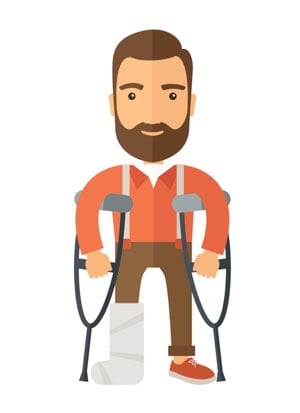 Murphy’s Law states that if something can go wrong, it will go wrong, and it’s a law that could have been written with the construction industry in mind! There are so many moving parts, activities, and different players all working on a location that has potential hazards around every corner.
Murphy’s Law states that if something can go wrong, it will go wrong, and it’s a law that could have been written with the construction industry in mind! There are so many moving parts, activities, and different players all working on a location that has potential hazards around every corner. Wouldn’t it be great to this the year you decrease your Workers Compensation insurance costs? Now is the perfect time to tune up your WC program to experience cost-savings.
Wouldn’t it be great to this the year you decrease your Workers Compensation insurance costs? Now is the perfect time to tune up your WC program to experience cost-savings. This is a great time to review your WC policy for potential opportunities to save while getting better coverage. American Insuring Group specializes in Workers Compensation Insurance and will help you get the right insurance at a great price.
This is a great time to review your WC policy for potential opportunities to save while getting better coverage. American Insuring Group specializes in Workers Compensation Insurance and will help you get the right insurance at a great price. We’re sure it comes as no surprise that
We’re sure it comes as no surprise that 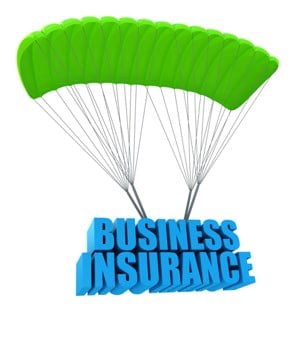 Every business – no matter how big or how small – faces liability, but do you need general liability insurance? Regardless of how careful you are, accidents can (and do) happen causing damage to property and/or injury to employees, customers, vendors, etc.
Every business – no matter how big or how small – faces liability, but do you need general liability insurance? Regardless of how careful you are, accidents can (and do) happen causing damage to property and/or injury to employees, customers, vendors, etc. 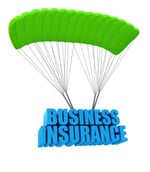 What type of liability insurance and how much coverage you need to protect your business is very unique. But you don't have to go it alone!
What type of liability insurance and how much coverage you need to protect your business is very unique. But you don't have to go it alone! Whether you’re the owner of a one-person home-based handcrafted jewelry business or a large manufacturing plant with 300 employees, you face risk every day. You could lose your entire inventory to a fire, cause an injury while driving to a client meeting, or face a lawsuit for any number of reasons.
Whether you’re the owner of a one-person home-based handcrafted jewelry business or a large manufacturing plant with 300 employees, you face risk every day. You could lose your entire inventory to a fire, cause an injury while driving to a client meeting, or face a lawsuit for any number of reasons.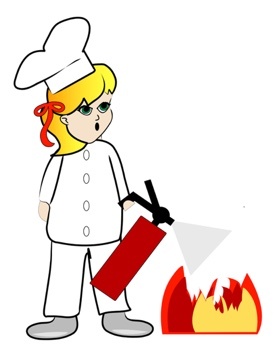 it’s a mixed bag.
it’s a mixed bag. Don't go it alone. Give American Insuring Group a call at
Don't go it alone. Give American Insuring Group a call at  The construction industry is booming – both new construction and remodeling - and it looks as if that trend will continue. Construction has a 4.5% projected growth rate over the next five years.
The construction industry is booming – both new construction and remodeling - and it looks as if that trend will continue. Construction has a 4.5% projected growth rate over the next five years.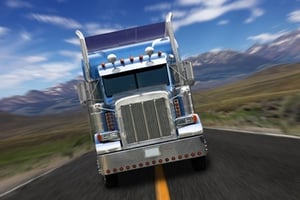 You have a great deal of power behind the wheel of a tractor-trailer. It's your responsibility to drive safely. As a bonus, if you do, then you'll also enjoy lower truck insurance costs.
You have a great deal of power behind the wheel of a tractor-trailer. It's your responsibility to drive safely. As a bonus, if you do, then you'll also enjoy lower truck insurance costs.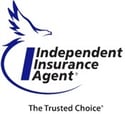 To learn more
To learn more 



